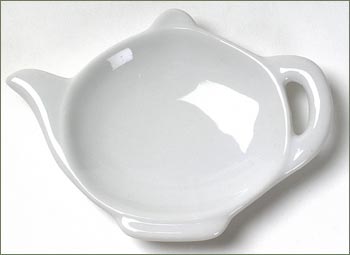There are well-known prestigious awards distributed to those who gain international recognition in various fields of achievement in the sciences, literature and/or are successful in various scopes of performance and related areas. Then there are lesser known distinctions bestowed to people whose contribution to society could be, but not necessarily, considered somewhat questionable or at the very least,
head-scratching-inducing.
Somehow, the
2015 Ig Nobel Prizes almost slipped by on my part, without any of the usual acknowledgement and commendation to the winners. These are achievements that elicit laughs but are also thought-provoking. This year's winners gathered together on September 17 at a ceremony at
Harvard University's Saunders Theatre, followed by a lecture at MIT. These people went home with an Ig Prize:
The prize for
Chemistry went to Calum Ormonde and Colin Raston (Australia), Tom Yuan, Stephan Kudlacek, Sameeran Kunche, Joshua N. Smith, William A. Brown, Kaitlin Pugliese, Tivoli Olsen, Mariam Iftikhar, Gregory Weiss (USA),
for their invention of a chemical recipe to partially un-boil an egg. This is no yolk...eggs-actly.
The rationale behind the desire to un-boil an egg is curious but then again, one could ask oneself whether an egg is half-boiled or not, would it make a difference to a hen? Just thinking...
In the science of
Physics, Patricia Yang (USA and Taiwan), David Hu (USA and Taiwan), Jonathan Pharm and Jerome Choo (USA), who
tested the biological principale that nearly all mammals empty their bladders in approximately 21 seconds (plus or minus 13 seconds).
Contemplating further, one (me) wonders whether this would vary following a night of alcoholic indulgence. Just thinking...
So Mark Dingemanse (The Netherlands), USA), Francisco Torreira (The Netherlands, Belgium, USA) AND Nick J. Enfield (Australia, The Netherlands), who took home the
Literature Prize, for their earth-shattering discovery - wait for it - that
the word, "huh" (or its equivalent) seemed to exist in every human language - and for not being quite sure why.
Would depend, IMHO, if one considers "huh" a word uttered on purpose or merely an exhalation of breath on a windy day. What about the Canadian equivalent of "eh:? Where does that fall in the scheme of things? Just wondering...
In the area of
Management, Gennaro Bernile (Italy, Singapore, USA), Vineet Bhagwat (USA, India) and P. Raghavendra Rau (UK, India, France, Luxembourg) in their discovery that many business leaders developed a fondness
for risk-taking in childhood when they experienced natural disasters i.e. earthquakes et al that - for them - had no dire personal consequences.
Now here is something worthy of recognition. The Bangkok Metropolitan Police were recognized in the
Economics area (Thailand),
for offering to pay policemen extra cash if the policemen refused to take bribes.
For the
Medicine prize, two groups received the honors jointly - perhaps they were testing their experiments: Hajime Kimata (Japan, China), Jaroslava Durdiakova (Slovakia, US, UK), Peter Celec (Slovakia, Germany) Natalia Kamodyova, Tatiana Sedlackova, Gabriela Repiska, Barbara Sviezena and Gabriel Minarik (Slovakia), for
their study examining the biomedical benefits or biomedical consequences of intense kissing (and other intimate, inter-personal activities).
So how this falls into the medical sphere is interesting but even more interesting would be what type of activities did they conduct to arrive at their conclusions. Right?
The prize in
Mathematics was awarded to Elisabeth Oberzaucher (Austria, Germany, UK) and Karl Grammer (Austria, Germany), for
trying to use mathematical techniques to determine whether and how Moulay Ismael the Bloodthirsty, the Sharifian Emperor of Morocco, managed during the years from 1697 through 1727, to father 888 children.
Yet another
chicken aspersion in the
Biology prize category. Bruno Grossi, Omar Larach, Mauricio Canals, Rodrigo A. Vaszuez (Chile), Jose Iriarte-Diaz (Chile, USA),
for observing that when one attaches a weighted stick to the rear end of a chicken, the chicken then walks in a manner similar to that in which dinosaurs are thought to have walked.
Why do chickens have to suffer indignities like having a weighted stick attached to their rear end? I mean, is there a reason? It's bad enough having to speculate about their motivation for crossing the road/highway/street etc. and now being categorized as walking like a dinosaur? Really and when you think about it (too much time on my hands, obviously), who was around to witness the manner in which dinosaurs walked, anyway? Am I wrong, readers?
I dunno. Some people really seem to enjoy pain, Two individuals, one Justin Schmidt (USA, Canada) for painstakingly (in the true sense of the word)
creating the Schmidt Sting Pain Index that rates the relative pain people feel when stung by various insects.
Really.
Also, Michael L. Smith (USA, UK, The Netherlands) in the area of
Physiology and Entomology,
for carefully arranging for honey bees to sting him repeatedly on 25 different locations on his body, to learn, which locations are the least painful (the skull middle, toe tip and upper arm) and which are the most painful (the nostril, upper lip and - can't believe I'm writing this - penis shaft).
It's really difficult to believe that someone, even in the name of science, would allow a/some bees to sting him on the penis shaft.
Bee+stinger+penis=extreme pain.
And so yet another year of dubious distinctions has come and gone but definitely not without notice or accolades. Next year - who knows. The mind boggles.
